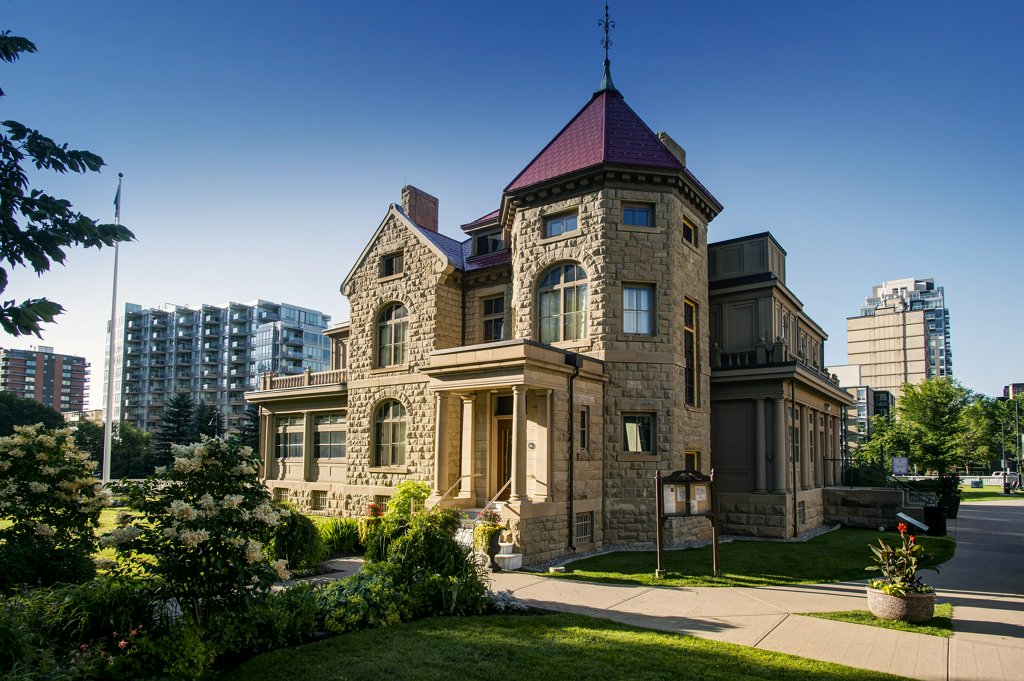4.3 Case Study: Entrepreneurial Spirit and Innovative Storytelling
Case Study
Lougheed House
Calgary, Alberta
Typology: Large, Urban
Model: Owner and Operator with Third Party Commercial Groups
Owner: Province of Alberta, City of Calgary
Operator: Lougheed House Conservation Society
Third Parties: Chef Judy Wood and Flavour YYC, Hotel Arts

The Partnership
The former home of Senator and Lady Lougheed is restored house and gardens designated as a provincial historic resource and national site which functions today as an Alberta provincial historic site with multiple uses. These uses include a museum, exhibitions and educational programming and events spaces, a shop, and venue rentals. A restaurant is operated through a subcontracted third party. The City first took possession of the 3-acre estate in 1934, and the house and west end of the property transferred to the Province in 1978, following its Historic Resource designation. The Society was formed in 1995 as a non-profit charity to conserve the property and has operated the site since its opening in 2007.
The eastern portion of the property is owned by the City of Calgary and includes city owned park space and the formal, restored Victorian Gardens of the Lougheed House. This portion of the property is maintained by the City’s Parks Department, except for the flower gardens and beds, the responsibility for which is with Lougheed House and its gardening team. The Society works with the Province’s outsourced property manager to care for the rest of the estate on the western portion of the property, and the House, walkways and a parking lot. Gardens on the western portion of the property are the responsibility of Lougheed House. Maintenance and capital upgrades are the responsibility of the Province, which also provides approximately 40% of the Society’s annual operating funding. The Society operates the facility, animates the site and pursues revenue generation through a variety of streams.
Why It Works
A driving factor in Lougheed House’s success is that the Society exists solely to operate the site. Their function is clear, and there are few conflicting interests directing the course of their work.
Recognizing that they cannot depend on their Provincial operating funding alone, the Society pursues other revenue streams such as fundraising, membership revenues, grants, donations, and earned revenue through venue rentals, catering commissions, gift shop and restaurant sales, and ticket sales for events to evolve the site and grow its potential for visitors. Their awareness of the connection between financial sustainability and organizational growth fosters a strong entrepreneurial spirit. For example, through the addition of on-site catering services and strategic marketing, Lougheed House is now a premier wedding destination – contributing valuable funds that support the Society in achieving their vision for the site.
Lougheed House demonstrates a successful integration of multiple partners, in that the Society, City, Province, and third party contractors work together to leverage their individual skills and resources, particularly in maintaining the grounds, gardens, and historic house. The complexities of the arrangement are approached as an opportunity, rather than a challenge, which benefits the overall development of the site.
Outcomes
The Society’s pursuit of diverse revenue streams is critical to its financial sustainability, and the site stands as a strong example of how an historic site can become an economic asset, rather than liability. Lougheed House is also becoming a place where important, often untold stories are being shared through dynamic exhibitions, programs, and events. The Society has effectively demonstrated initiative and competency in their role as operator, allowing them freedom and flexibility to explore the history of the site through non-traditional stories and media which enhance engagement and use of the site for an evolving community.